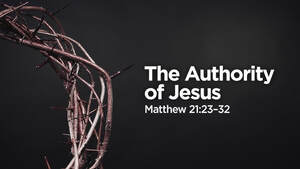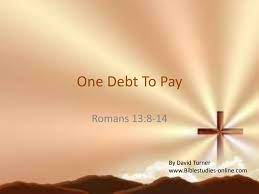|
Reflection: “Questioning our expectations of God” This week's reflection is provided by Warwick Havyatt. How we often put our expectations before the will of God ! I was out at Forbes some years ago on a friend’s farm. The crops were failing as a summer of drought was approaching. It was sad to see the stunted wheat with withered heads and the canola limp and straggly with no chance of setting seed. It could have been a bumper season, the winter growth had been good but there was no Spring rain and all the work and investment was going to waste. The farm manager toured the place with the owner and myself, it was a glum sight. Whilst we looked at the failed crops, the farm manager said, “How can you believe in God, when he lets things like this happen.” I was taken aback by this. I reflected on what he had said, I could not agree with him. God did not plant the crop, he had provided the land with its own natural riches, which farmers had destroyed to plant their crops for profit. How could you hold God responsible for the risk taken in planting a crop especially in rural Australia when drought is such a part of the landscape? I did feel sorry for the loss and felt the disappointment of the owner and the manager. There was a definite sense of desolation. But I also felt that often our ideas of God are way out of place and that the expectation of society in general is that God should do what we want and give us what we want. We think of our own needs and gloss over the reality that God is the ultimate authority. It is so easy to fall into the mindset that we have God on tap. In doing so we have our ideas the wrong way around about who serves who. In our reading from Matthew, we see that the Jewish priests in the Temple in Jerusalem held the religious authority in Jewish Society. The priests thought that they were the very chosen of God, the Godly elite. But then they are challenged. Fronting up in their midst comes Jesus, an itinerant preacher from Galilee. He reached out to the people, teaching them about God without much reference to the proper procedure and protocol of the Temple, and he even dares to challenge the priests as to their authority when they question his authority to preach. The whole question of authority to preach can be a thorny one. John Wesley was at first indignant when he heard that in his absence a layman was preaching in services rather than just reading. John Wesley was an ordained minister (actually in the Anglican Church) and this seemed an affront to him. It was his mother who persuaded him that as long as the message of Christ was being preached then that was a positive outcome. John Wesley went on then to promote lay preaching, setting out rules and structure for lay preachers and defending them from criticism by the Anglican Church of the day. Even today, the question of preaching authority is in the news with the Sydney Anglicans not allowing women to preach to a congregation with men. It is interesting in our reading from Matthew that Jesus calls on the authority of John the Baptist and we are told that the priests shrank away from answering due to John’s popularity. In fact, it may be a bit deeper than it first appears because under Roman Rule, the Jews felt oppressed but the Temple had gained special dispensations from the Roman Government, which caused resentment. The people were looking for a leader, in fact a messiah to deliver them. Obviously, the Temple priests had a credibility problem but were too blinded by their own importance to recognize the power of Jesus. In the story of Exodus, the Israelites challenge the authority of Moses which was given by God. If God really was looking after them, why would he let Moses lead them into the desert to die when they were surviving reasonably well as slaves in Egypt? Was God really leading Moses? As if the parting of the waters of the sea was not enough proof for them. God lead Moses to the rock that brought forth water when struck by his staff. The expectations of the Israelites were then met, maybe not quite as they expected, and the authority that God had placed on Moses was restored. We may see this as being somewhat fickle on the part of the Israelites but I suggest that faced with hardship we would most probably be just as fickle. Often our expectations are high and our patience runs thin. Our expectations can easily clash with the authority of God, but God is the ultimate authority and the humility of Jesus Christ and his total acceptance of God’s will should inspire us and guide us in our lives. Amen. Warwick Havyatt
0 Comments
Reflection: “Paul's letter to the Philippians” Message preached on Sunday 17 September by Andrew Corish When our pastor Rick indicated he would be away for a period and needed people to fill in for him, I chose a Sunday when one of the readings was from Paul’s letter to the Philippians. I have long had an interest in it and do remember particularly some people I respect saying it was their favourite passage in the bible.
So I have been studying it for last 2 months in my own inexpert way. I do agree it is really wonderful and inspiring. It is only 3 and half pages long. It is one of Paul’s 7 letters in the bible which everyone accepts as being authentic. It is probably the last of Paul’s letters , written a few years before his execution in Rome in 64AD. It was written from a Roman gaol, probably in Rome itself. The background was that the church at Philippi had heard of Paul’s imprisonment. This was the first church Paul had established in Europe and he had a very close relationship with them. They had sent one of their members, Epaphroditus, to visit Paul with a gift of money and to serve him whilst he was in gaol. But it hadn’t worked out as Epaphroditis had become sick and homesick. Paul was now sending him back home to Phillipi. But the context seems to be that Paul didn’t want Epaphroditis to be humiliated or it to look as if he had failed Paul. So Paul dashed off a letter for him as a message to the church and so Epaphroditis could be the official courier of it. But work done spontaneously and from the heart is often the truest and most meaningful. So, what is the main message of Paul to the Philippians at this time of crisis and suffering for him in dire circumstances of a Roman goal, where he was probably chained in the dark and facing imminent execution? Well, the first thing to notice is the letter is all about “joy”. Paul mentions “joy” and “rejoicing” 12 times . In Chapter 4 he says “Rejoice in the Lord always and again I say rejoice”. Paul is feeling joyful. He mentions the success he is having in his imprisonment and having contacts at high level with the Praetorian guard and the Emperor’s household. He is joyful at the generosity of the Philippians to him and the progress they are making. And how he is doing the work successfully he is so devoted to. So this is clearly one of the most important messages about Christian life that Paul wants to emphasise. That it is a life of joy. A second message from his letter is from our main reading today. Paul says, “For to me, living is Christ and dying is gain.” He doesn’t know which he prefers because living is fruitful labour for him but dying means he will be with Christ. He knows he faces an imminent and frightful death soon as leader of the Christian movement and is ready for it. He says later, “I want to know Christ and the power of his resurrection (by) sharing of his sufferings by becoming like him in death.” . He is not looking forward to it. But he fully embraces it. Paul shows enormous courage. So that is a second feature of Christian life. It is living with courage, without fear of death. Or fear of anything. Then he tells the Philippians that they need to respond by “behaving” as followers of Christ. He says in our main passage today; “live your lives in a manner worthy of the gospel of Christ.” This doesn’t mean avoiding some suffering: He says in our reading this morning, “For he has graciously granted you the privilege, not only of believing in Christ, but of suffering for him as well.” Paul is not a supporter of the “prosperity gospel”. We all face suffering as part of life. Rather Paul explains it in Ch 2 what Christian life is about. “Be of the same mind (as Christ), having the same love”. So what does this mean; “having the same mind and love as Christ”? He explains: “…do nothing from selfish ambition or conceit, but in humility regard others as better than yourselves. Let each of you look, not to your own interests but to the interests of others.” He then quotes from an early Christian hymn and this is perhaps the oldest passage in the whole new testament. Paul says that “though (Christ was) in the form of God, (he) did not regard equality with God as something to be exploited but emptied himself, taking the form of a slave, being born in human likeness.. he humbled himself and became obedient to the point of death-even death on the cross.” Why “even death on the cross”? Because crucifixion was the crude execution, used to terrorise and punish runaway slaves. And the thought of the Messiah dying in this way was unfathomable to the Jews and Romans. And Paul continues: “Therefore God also highly exalted him, and gave him the name that is above every name, so that at the name of Jesus every knee should bend .. and every tongue confess, that Jesus Christ is Lord.” So that apparently is the “mind of Christ”. That is what Christ was like. And Paul should know. He was a contemporary of Jesus. He was intimately acquainted with the disciples and James the brother of Christ and others who lived with Jesus. It is interesting that Paul in all his letters doesn’t mention a single miracle of Christ. He hardly says anything about healings by Jesus. This all occurred in the later Gospels. What Paul emphasises about Christ is his love, and humility and kindness and a radical devotion and obedience to God. Paul then tells the Philippians to “work out your own salvation with fear and trembling; for it is God who is at work in you; enabling you both to will and to work for his good pleasure.” So being a Christian does entail working it out, taking responsibility and participating in your own salvation.. But be assured; God is at work in you and helping you to want it and to do it. Paul then he speaks of his proud tradition of he being a Jew, a “Pharisee” indeed. This is the only place we hear this, that Paul was a Pharisee. And not just an ordinary Pharisee. He says that under the law and as to “righteousness”, Paul says he was “blameless”. But now he says he has come to regard this and everything else as a loss “because of the surpassing value of knowing Christ Jesus my Lord.” He says he has come to regard such things as being “rubbish”. That is, “Judaism” as it was then understood. That you could earn righteousness and favour from God by your works. Rather than through faith and the grace of God. He is not rejecting Judaism. Just saying that this is the new development of Judaism. Jews had to move on. They couldn’t keep God all to themselves. They had to spread it to the world, as Jesus had begun doing. And Paul was now continuing. So this is another attribute of Christianity that Paul emphasises. That is about having a radical faith in God through Jesus. But Paul then goes on to say that he hasn’t attained this state yet. What he has attained is: “forgetting what lies behind and straining forward to what lies ahead…Let those of us who are mature be of the same mind.” So dont dwell on the past and your mistakes and failures. Always look towards the future with hope and optimism. Paul asks the Philippians to “join in imitating me”. Paul is not one to tell people to do as he says. Rather it is to imitate what he does. He says “Let your gentleness be known to everyone.” That is a mark of being Christian He tells them to concentrate their minds on “whatever is true, whatever is honourable, whatever is just, whatever is pure, whatever is pleasing, commendable, excellent and worthy of praise.” These are the things we are to think and focus on. He goes on to say that he, himself “(has) learnt to be content with whatever I have; whether I have little or plenty.” So there is a benefit in finding contentment in your current circumstances. Being happy and grateful for what you have. He says, “I can do all things through him who strengthens me.” So we have a source of empowerment to do and achieve whatever you want. Then he advises them, “Do not worry about anything, but in everything, by prayer and supplication, (that is, humbly asking for something) , with thanksgiving, let your requests be made known to God. And the peace of God which surpasses all understanding, will guard your hearts and minds in Christ Jesus”. This is one of the great verses in the Bible. As a Christian you receive the great gift of the Peace of God which surpasses all understanding. So I think this is an interesting analysis of Christianity and what it encompasses. It is interesting that Paul in all his letters doesn’t mention a single miracle of Jesus. Not even any healings. That apparently wasn’t what Paul thought was important about Jesus. All that came later in a different time and place where a new generation reflected on Jesus in the 4 Gospels and also on Peter and Paul in book of Acts. Paul does refer to what he calls the Gospel and that was presumably what the early church believed. And it focussed on different things. It focusses on four great themes of living a Christian life. That is to live a life full of joy, courage, faith and peace. Of trying to live a life worthy of the gospel by trying to have the mind and love of Christ. And this manifests itself in humble service to others, being kind and gentle, and not thinking too highly of yourself but being part of a great and wide community and caring for those who need your help most. It means putting the past behind you and being content and thankful for what you have and what you are empowered to do. And having the Peace of God which surpasses all understanding. So I understand it is not for everyone. It is a difficult and demanding . It is huge challenge to live in a manner worthy of being a follower of Christ. And trying to have the same mind as was in Christ and which Paul was seeking to attain. I understand people rejecting it. But people reject Christianity and disrespect it because they don’t understand it. They get a terrible impression that it is all about trying to force yourself to believe the unbelievable and being sanctimonious and self-righteous and delusional. It is not. It is about having the spirit of Jesus and of Paul in our own lives. It is about having a radical commitment to Christ. It is our responsibility to model what Christian life and belief is in our own lives. And then people can at least respect it as something worthy of consideration. That is our great responsibility and challenge. Amen Andrew Corish Reflection: "Who Are We To Judge?"When we look at actions of others, that we believe to be inappropriate, there’s a temptation for us to become judgmental, telling them how we believe they’re wrong, and thus worthy of being punished for their terrible actions.
We know that this sort of attitude is nothing new - but is it really our place to do so? From his writings, we can see that Paul encountered the same problems back in his time. To the Christians in Rome he writes: "Welcome those who are weak in faith, but not for the purpose of quarrelling over opinions. Some believe in eating anything, while the weak eat only vegetables. Those who eat must not despise those who abstain, and those who abstain must not pass judgment on those who eat; for God has welcomed them." Clearly, in what he writes, Paul shows echoes of some of the arguments he must have encountered over his years as a pastor, when creating new churches. It’s easy for us to become judgmental when we’re convinced that the way we do things is right and the way others are doing things is wrong. Of course, there are times when things are clearly wrong, and Paul isn’t shy about letting the fledgling churches know when they’re straying from the teachings of Jesus. But let’s listen to Paul's example again, because in many ways, this controversy sounds very modern. Some folks eat anything, others eat only vegetables and those who eat anything shouldn't despise the vegetarians. Also, the vegetarians shouldn't despise those who eat anything. Nowadays, some people are vegetarian to varying degrees, and may look at the rest of the world, or at least the non-vegetarian portions of it, as somehow inferior to themselves, or somehow morally deficient for eating meat. Still others have rules, usually religiously based, as to what types of meat they can eat, or how it was killed and prepared. It might be a bit surprising to find this very similar argument dividing the church at the time of Paul. But perhaps it shouldn't surprise us at all. After all, people don't seem to have changed their ways all that much since then. In Paul's day, the issue revolved around the fact that the meat usually came from an animal that had been sacrificed to a pagan god and, therefore, in eating the meat from that animal, a person was thought to be worshiping the god to which the animal had been sacrificed. Christians in that time denied the existence of these other gods and some of them had no objection to eating the meat, arguing that it was, after all, only a dead animal. Others had trouble with this theological concept and so they only ate vegetables - just to ensure they weren’t inadvertently worshiping some pagan god. The reasons for selecting a vegetarian diet may have changed over the years, but basic dietary positions seem to be much the same now as they were twenty centuries ago. Paul felt that it was necessary to point out to the Roman Christians that it was not really their place to criticise another person, just because they had different opinions from their own. Another way we can get into trouble, is when our opinion is that God agrees with what we believe. This leads us to conclude that God disagrees with anyone who has a different opinion/alternate view on the matter. This particular idea leads people into all sorts of problems, both in the church and even in the secular world. An example of the strife this attitude can cause, is the history of the Crusades, when some Christians claimed that God must want various sites in the Holy Land freed from being controlled by non-Christians, who believed that Allah – their God – wanted them to stop the infidels from invading their lands. Some years back, we saw another example of the belief that God is on one side only, in the conflict in Northern Ireland where Catholics and Protestants both believed that they had God on their side. In the military, there is a concept called the chain of command and it makes the process of action/response quite clear and easy to understand. The person in charge gives an order and the people who are under their control carries out the order. In the rest of the world, we’re not usually involved in something quite as strict as a chain of command, but we do have to follow the laws of the land. Unfortunately, some of us think that we’re in charge of our own lives and can just do as we please. We need to remember that, as Christians, we’re all servants of God, each having a unique relationship with God, and thus, each following our own instructions from him. It is, as Paul reminds us, not for us to judge the relationship others have with God. A third judgment problem is the natural tendency of all people to avoid the consequences of their actions. We can sometimes live as if we expect there to be no judgment, and that we have no responsibility for our actions. Some people even try to avoid the consequences of their actions, especially when it looks like they’ll end up in some sort of punishment for whatever it was that they did. Consider the story of a university student whose father had high expectations, perhaps too high, for his son. When, at the end of the year, the student found that he had failed all his subjects, he sent his mother a quick e-mail: "Mum, failed everything. Prepare Dad." His mother sent the reply: "Dad is prepared. Prepare yourself." This ominous message serves to remind us that, in life, we can’t avoid the responsibility for our actions. The student probably had the ability to avoid failure by applying himself more diligently during that year, but instead tried hard to avoid the parental response to his wasted time. Possibly the father could have been more understanding of the pressures modern students are under and supported him better during the year. Paul emphasised to the Roman Christians that everything we do, we do for the Lord, not for ourselves. His clear message is that: “Christ died and lived again, so that he might be Lord of both the dead and the living.” On judgement day, we’ll all stand before him and, faced with a detailed inventory of our sins, we might all be tempted to crawl under a bed and hide. So, what makes us think that we have a right to judge others? Obviously, the only one qualified to judge us is the one who is without sin - and that person is Jesus. He came to earth to show us how to live blameless lives, however none of us will ever be able to emulate his blameless life. We shouldn’t judge others. When talking to an angry crowd, who wanted to stone an adulterous woman, Jesus said to them: “Let he who is without sin cast the first stone.” In today’s Gospel reading we even hear Peter asking Jesus how many times he had to forgive someone who had wronged him. Peter seemed to think that seven times will be sufficient, but Jesus was thinking of more like seventy-seven. In other words, way more than Peter could ever imagine. Jesus wants us to put grievances behind us and get on with the important tasks that he has asked us to do. Things like loving our neighbours and spreading the gospel throughout the world and making disciples of all men. You know, the sort of stuff that can make a difference. When it’s time for us to stand before him, we shouldn’t let our bad attitudes towards others be another negative in our book of life. Let’s focus on the positives in life so we’ll be happy to see Jesus when the day of judgement arrives. Pastor Rick Reflection: "Good News – for Both Rich and Poor"This week’s reading from Exodus is the bookend to the earlier story about the commissioning of Moses.
It tells of how Moses was sent by God to Egypt, to free the Israelites from slavery. In this reading, we hear about how God is preparing to achieve their release and relocation to their promised land. We call this the “Exodus”, hence the title of this book in the Old Testament. It was certainly good news to those Israelites who had been in slavery for many centuries. It didn’t, however, sound like very good news for the Egyptians. In the intervening chapters of Exodus, we heard of plague after plague besetting them, whilst Pharaoh refused to release them, until finally, in this passage, every first-born Egyptian child was killed in the night. Yes, it was great news for the People of Israel – they were to be freed at last; freed from slavery; free to find a home of their own; free to worship their God. But how you view the events that took place in Egypt way back then, depends very much on whether you were the slaves or the slave-owners, the rich or the poor. How we hear the messages of the Bible depends very much on our context. People who are bowed down, upon whom war is being waged, or even those who are enslaved by cruel governments, will readily identify with the people of Israel being set free by God. You only have to listen to many of the negro spiritual songs out of the American south in the 18th century, to hear their plaintive cries for freedom. But who are we, living at his time in the great nation of Australia – this land of plenty? Aren’t we much more like the rich and powerful people, i.e. the Egyptians, than the downtrodden and enslaved one? So do stories like this one in Exodus, sound like good news to us? Is there some good news for both the rich, as well as the poor, for the powerful, as well as the powerless? Well, fortunately for us, we also have the New Testament section of the bible, where the life and impacts of God’s son, Jesus, are recorded. In the New Testament we read not only of a Jesus who reached out to the poor, the sick, the losers and the rejected, but one who showed the rich and the powerful a new way to live their lives. But he never said that it would be easy. Do you remember reading about him likening the chances of a rich man entering the Kingdom as being akin to a camel passing through the eye of a needle. The privileged ones have to give up everything, whereas those who are already down, can gain so much. The Jesus way is one of recognising all people as our neighbours and ensuring that we love all of our neighbours - especially the ones who are most in need. That may sometimes lead us to having to speak hard words to those who are oppressing others, a seemingly impossible task. But we don’t give up on oppressors, because God’s amazing love through Jesus Christ can change even them. We just have to look at how those who’ve been mistreated, often brutally, can find ways, almost beyond our comprehension, to show compassion and forgive their oppressors. We call this compassion “grace” and it is the grace of God that shows us how to do it. Paul, in his letter to the Christians in Rome, says that we should “owe no one anything, except to love one another.” He reminds them that all the commandments can be summed up in the words “You shall love your neighbour as yourself.” Have you ever put yourself in the place of those upon whom your actions impact? How will they feel? Will they respond with love, or hatred? God’s love can change oppressors and victims into loving brothers and sisters and we must ensure that we always pass on God’s love to those that we meet. So yes, there is good news for the rich as well as the poor; for slave-owners, for soldiers and victims, as well as for you and for me - if we will only open our minds and our hearts to the transforming message that Christ brought to us during his time here on earth. That, along with God’s ongoing gift of the Holy Spirit, enables us to work together to bring God’s love to even the darkest reaches of the world. We can go on from here, strong in the knowledge that God is with us and that we are now his hands and his feet in the world and that it is our task to continue the work started by Jesus, over 2,000 years ago. It doesn’t matter where we are in our lives, there is always something we can do to further the work of the Kingdom. God has a plan for each of us – and that certainly IS good news! Pastor Rick “We have eaten and tasted the kind of freedom that draws us into the struggle for justice and freedom for all. So, eat well and wage peace in a divided world. Go where the hurt is and work for healing and reconciliation. Amen” Reflection: "Take Up Your Cross""From that time on..." these are the words at the beginning of this week’s gospel lesson and this closely ties in with verses 13-20 of Matthew 16 from last week’s lesson, where Peter confessed his faith that Jesus was the Messiah, the Son of God.
Now, in these verses, Jesus shows him (and us) what messiahship and discipleship entail. Prior to Chapter 16, Jesus had spent much of his time addressing crowds, working miracles, and verbally jousting with the Jewish religious leaders, before turning his focus to instructing his disciples - preparing them for what will happen in Jerusalem - his personal cross - where he will be put to death. He tells us that the reward of cross-bearing is life – but what does he mean by life? The Christian life, with its costs and rewards, begins when we first begin to take up our own cross and follow Jesus. Some attributes of such a person and resulting reward could be:
With a few powerful words at the beginning of Chapter 16, Jesus reveals the whole purpose of his earthly ministry. That the Father’s divine plan for the salvation of all humankind and the good news (Gospel) is that he, the Christ, was sent to suffer, die and be raised again for the forgiveness of our sins and the sins of the whole world. Sadly, Peter couldn’t comprehend all that Jesus was revealing to them and so he responded, “Never, Lord! This shall never happen to you!” He, like the other disciples, was probably looking for a different kind of Messiah, one who would come like a shining knight on a white horse – an earthly saviour, sent to free them from the tyranny of their Roman overlords. But Jesus knew exactly who he was and exactly why he had come. Looking “through” Peter, Jesus said to the devil, “Get behind me, Satan! You are a stumbling block to me; you do not have in mind the things of God, but the things of men.” Jesus knew that he had come to “take up his cross” and follow the will of his heavenly Father and that it was absolutely necessary for him go to Jerusalem:
By doing so, he took on the shame of our sins, and, through this forgiveness, restore our relationship with God. Just as he did on our behalf, so he calls us to “take up our cross” and follow him. So often, however, it seems that we misunderstand just what this cross is. Our type of “cross” is not something that’s common to all people – Christian and non-Christian alike. Such things as difficulties at work, illnesses and disease, struggles in relationships. These are not necessarily “crosses”, because they’re common to all human beings. Rather, our cross is something Jesus places before us to willingly endure (and even to suffer):
Examples could be:
The true Christian strives to rise above these challenges, because we have the love of God in us and we aim to pass that love on to those we meet. Finally, Jesus said, “For the Son of Man is going to come in his Father’s glory with his angels, and then he will reward each person according to what he has done.” We know that Jesus doesn’t promise us eternal life because of what we do, but rather by how willingly we take up our own personal crosses to follow him, demonstrating the faith in our hearts and our loving response for all that he’s done for us. It’s by this faith he promises to reward us with the gift of eternal life. So, how is the Holy Spirit working in you at this time? What cross is Jesus placing before you today? How will you respond in joyful service to your Saviour? How will you, today, “take up your cross” to follow Jesus? The answers to these questions, which we can quietly answer in our hearts, will give us some idea of the steps required to know if we are moving down the path of becoming a true Christian. Pastor Rick Prayer of Intercession for our Church Community “God of new life, be with us as we journey through our faith. Let the signs of your goodness be upon us, that others may be invited into your way. May we genuinely love others. May we be enthusiastic and spirited in our acts of service. May we rejoice in hope, be patient in suffering, persevere in prayer, contribute to those in need and extend hospitality to strangers. May we bless those who persecute us, rejoice with those who rejoice, weep with those who weep, and not claim to be wiser than we are. Help us to not seek retribution or choose evil ways but seek to live peaceably with all and to overcome evil with good. If our enemies are hungry, strengthen us and fill us with your love, following the ways of Jesus as we feed the hungry and, if they’re thirsty, give them something to drink. Let kindness and generosity be your marks on us as we take on and live into your grace. In the name of Christ. Amen.” |
Pastor
|
LANE COVE
|
Worship Service:9:30am Sunday
© Lane Cove Uniting Church | 2020
|







 RSS Feed
RSS Feed